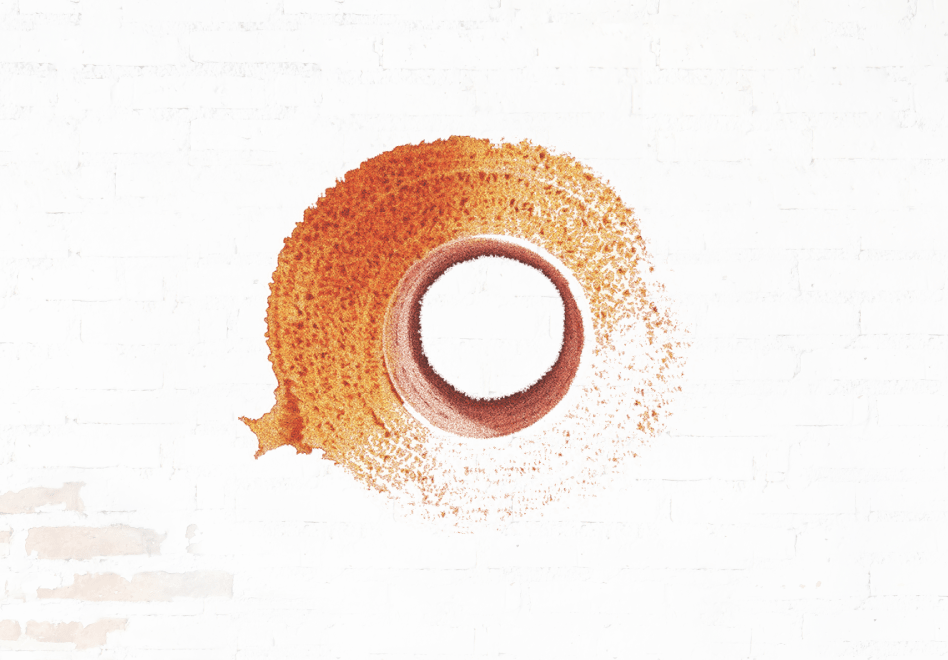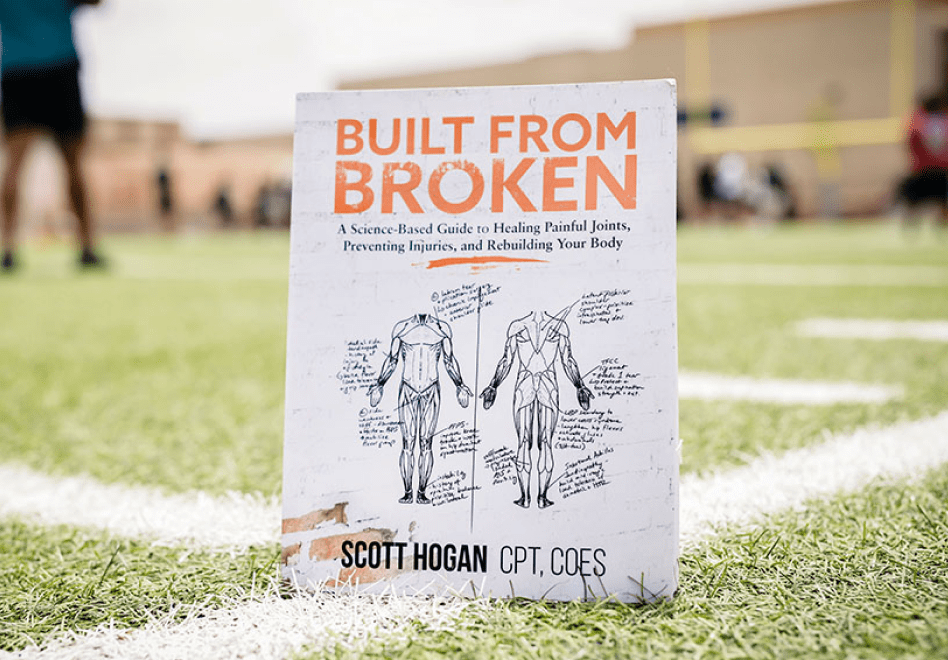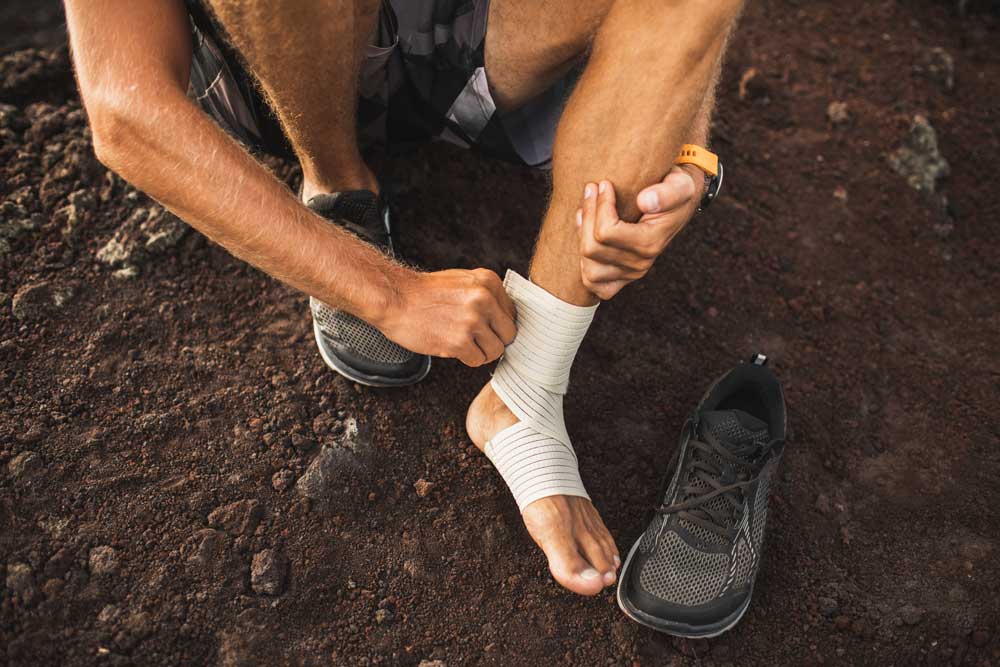
Be built (to last).
The right supplements can help you recover naturally and build a resilient body.
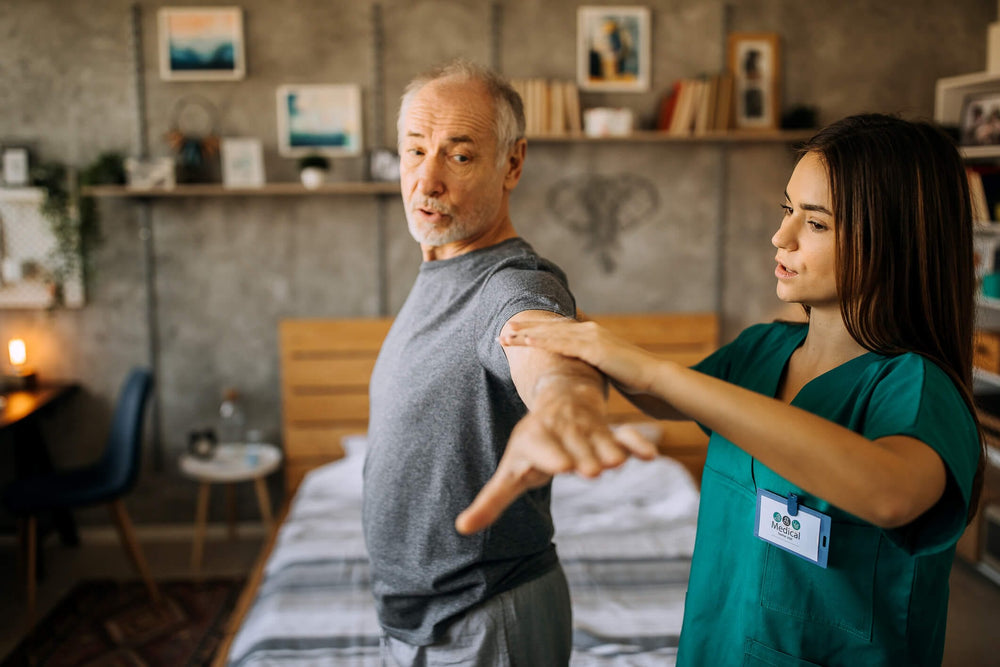
Supplement Quiz
Take this short quiz to discover the perfect supplements for your needs and goals.
About SaltWrap
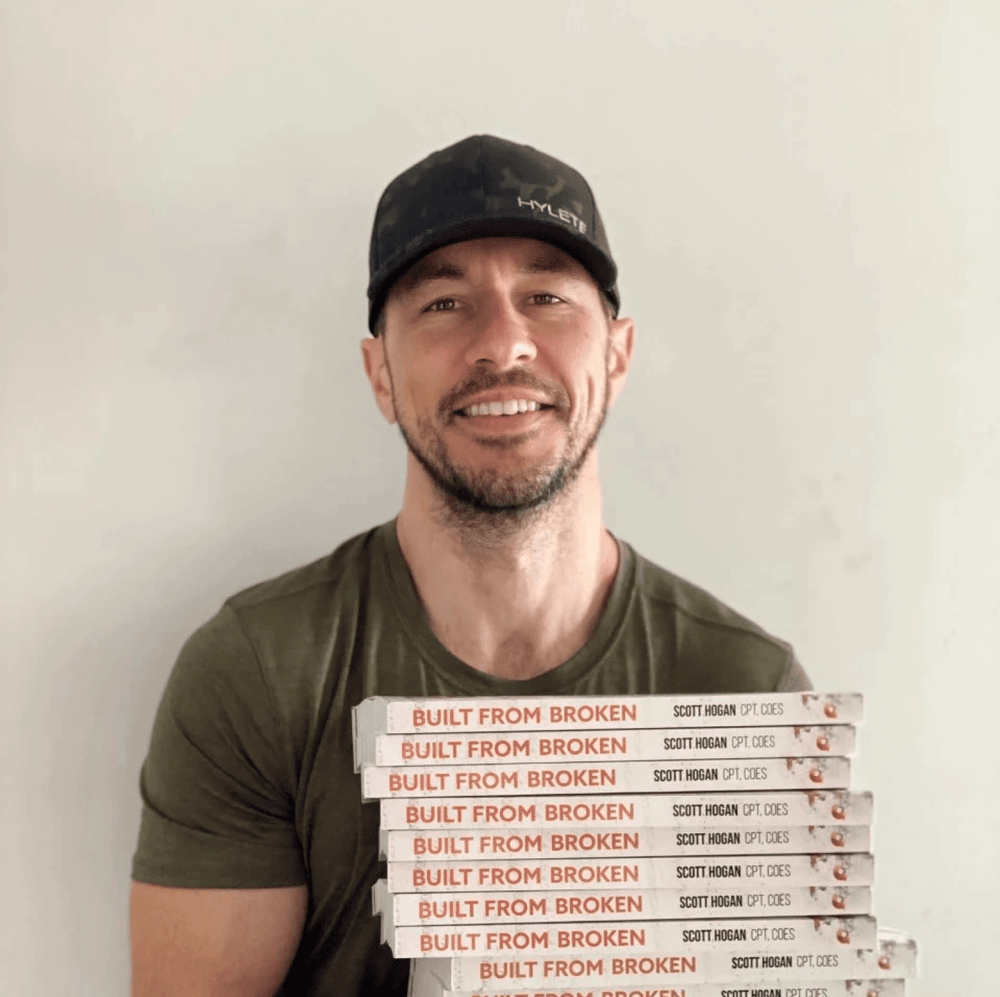
Built from Broken
Get the best-selling book from SaltWrap founder, Scott Hogan, and start rebuilding today.
3 Ways the Mind Powers the Body

By Alaina Curry, DPT
We often hear athletes and coaches talk about the importance of “mental toughness” or “mind over matter.” But did you know that the connection between the mind and body goes deeper than just motivation or willpower?
What if I told you that your mind holds the power to change the way your body heals, performs, and even experiences pain?
This isn’t just motivational speaking. It’s not pseudoscience, either.
The relationship between your mental state and physical state is real. It’s powerful. And it’s increasingly supported by emerging scientific research.
Whether you're recovering from an acute injury, managing nagging pain, or simply trying to improve performance, the role of the mind is more important — and powerful — than you might think.
Here are three ways the mind powers the body.

The Placebo Effect: Proof of the Mind's Influence
The placebo effect is perhaps the most well-known example of the mind’s power in action.
In clinical studies, the placebo effect is used to determine a treatment’s efficacy. Was it due to the treatment itself, or was it simply the patient's belief in its effectiveness?
Remarkably, people who receive a sugar pill — or any inert treatment — can experience real improvements in symptoms simply because they believe they’re getting real medicine or treatment.
That belief alone is often enough to trigger the body’s natural healing mechanisms.
Multiple studies support the idea that patients who believe they’re going to get better often do get better.
For example, one study found that 75% of patients with neck pain reported greater pain relief if they heard an audible “pop” during a spinal adjustment. It didn’t matter if the adjustment was technically more effective.1
Clinically, we know that the presence of a “pop” doesn’t determine the success of the treatment. But to the average person? That sound signals that something is working. And that belief can greatly support — and even help amplify — the body’s natural healing response.
The Power of Belief in Healing
As a physical therapist, this realization has been eye-opening.
If a patient doesn’t believe in the treatment or in my ability to help them, then their chances of recovery may be compromised.
Building rapport with and earning a patient’s trust isn’t just a nice bonus to care. It’s a critical part of the healing process. When a person believes they are being cared for — and when they trust that recovery is possible — the results often speak for themselves.
On the other hand, the mind can also get in the way of the healing process.
I’ve experienced this firsthand.
Last year, I suffered a back injury that sidelined me not just physically, but emotionally and mentally. As a former athlete, I’m used to pushing through pain. But this time was different.
The uncertainty of recovery shook me. Even as a professional with a deep understanding of injury timelines and rehab science.
Despite my training, I couldn’t stop the spiral of negative thinking.
Every setback felt like failure. Every flare-up convinced me I had done something wrong. Even when I started to improve, I was anxious and hyper-aware of any discomfort. I didn’t trust my body anymore.
It wasn’t until nearly a year later, after yet another flare-up, that things started to click.
Technically, my tissues had healed. The pain wasn’t “in my head,” but I could finally see that my fear and pessimism were making it worse.
Once I shifted my mindset — and reminded myself that I was strong and capable — the pain began to subside. I gradually felt safer and more confident. I started to become more at peace doing the things I love again, like working out and scuba diving.
Shifting my mindset didn’t just support my recovery. It reminded me that I have the power to shape my own healing.
Beyond Healing: Using the Mind To Optimize Performance
If the mind holds the power to influence healing, then what about performance? After all, if our mind can help restore our health from injury or illness, shouldn’t it also be able to elevate our performance?
It absolutely can.
Visualization, confidence, and positive self-talk are tools used by elite athletes and performers to enhance outcomes. These strategies can create a versatile and reusable mental blueprint for success.
I experienced this during my college soccer debut.
Before my first game, I repeatedly visualized myself scoring a header off a cross from my teammate. The details were extremely vivid, down to the feeling of impact, the surge of excitement, and even the celebration.
Our team's sports psychologist emphasized not just seeing the moment, but also feeling the moment.
That visualization became reality. In my very first college game as a freshman, I scored the game-winning goal, just as I had visualized.
That moment solidified for me how powerful the mind truly is — especially when aligned with intention and belief.
The same principles that help accelerate healing can also help us perform.
As you can see, I’ve personally experienced both sides of this proverbial coin.
And I can tell you firsthand that the mind isn’t just a tool for recovery. It’s a catalyst for achieving peak performance, helping to push you beyond what you thought possible.
Putting It All Together
The mind-body connection is a powerful and dynamic relationship. It helps shape how we heal, how we perform, and how we experience life. And it will always be a work in progress as we move through life’s obstacles. (More on that HERE.)
Whether you’re a patient, athlete, or clinician, it’s time to start treating the mind as an active participant in the body’s journey — not just an observer.
Trust this relationship and believe in it. Do what you can to foster it.
If you do, I have no doubt that you will see just how useful it can be.

Alaina Curry, DPT, CSCS
Alaina Curry is a founding member of SaltWrap's Clinical Advisory Board and one of South Florida’s most in-demand physical therapists.
A lifelong athlete and former NCAA All-American in Women’s Soccer, she became a Certified Strength and Conditioning Specialist to help athletes of all ages come back stronger – and unlock peak performance – after injuries.
Today, Alaina treats a diverse clientele wanting to lead an active, pain-free lifestyle. If you’re interested in becoming a potential client, go here now to learn more.
Founder: Scott Hogan

I created SaltWrap to bring together the most practical ideas in therapeutic sports nutrition, corrective exercise, and functional fitness — with the goal of keeping you (and myself) strong, mobile, and built to last.
I've worked as an A.C.E. Certified Personal Trainer, Orthopedic Exercise Specialist, and nutritional supplement formulator.
But more importantly — I've spent most of my life battling injuries, joint pain, and just being plain beat up. So I know what it's like to struggle toward fitness goals.
SaltWrap is here to push you through injuries, setbacks and perceived physical limitations. To a place beyond what you think you're capable of. Sign up here to stay in the loop.
Learn more about my best-selling injury prevention and recovery book, Built from Broken.

